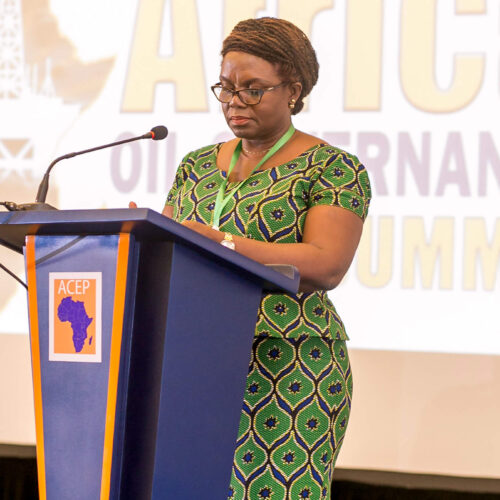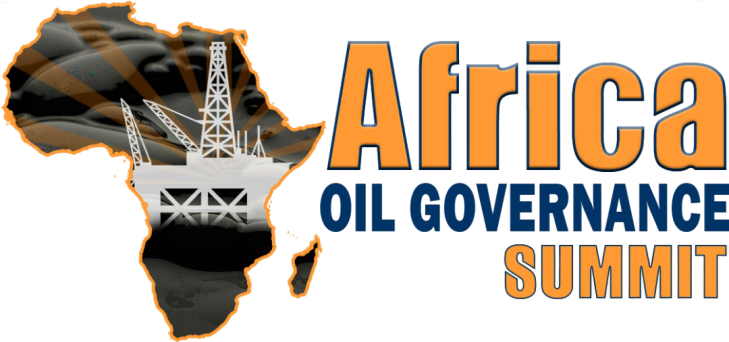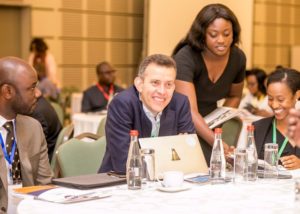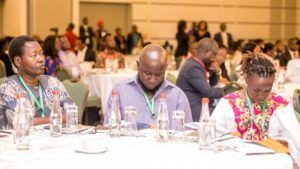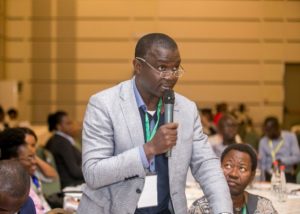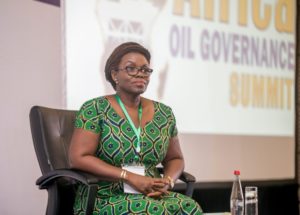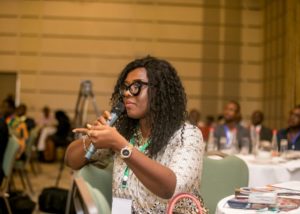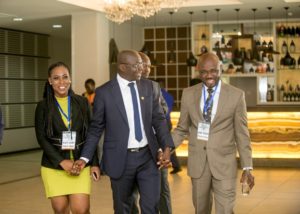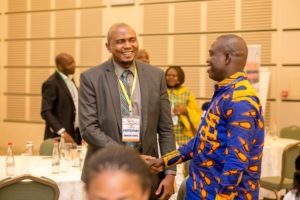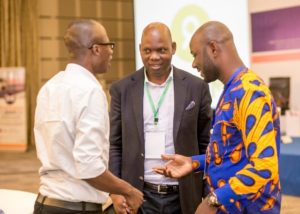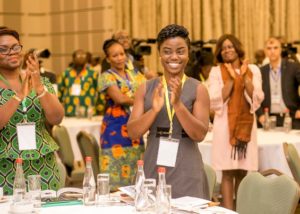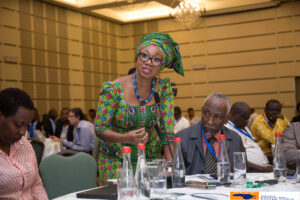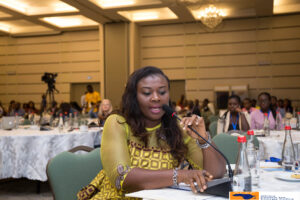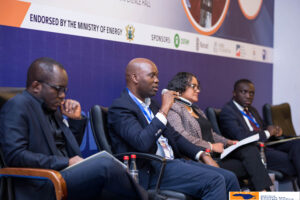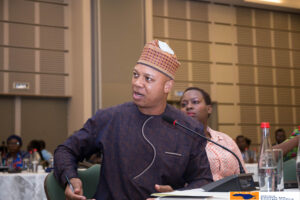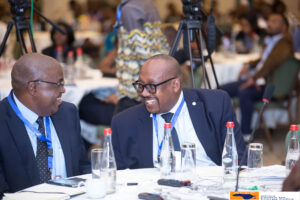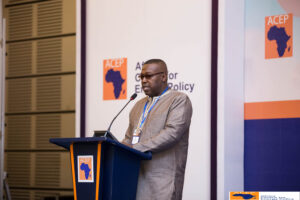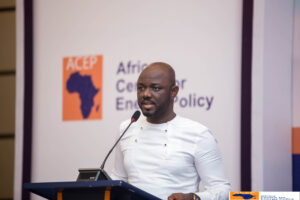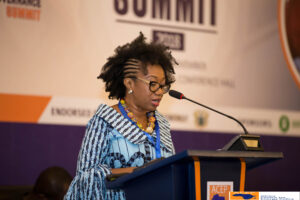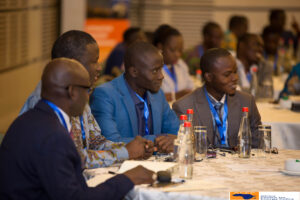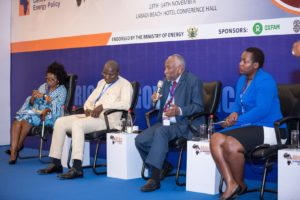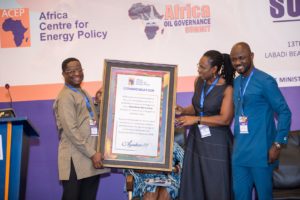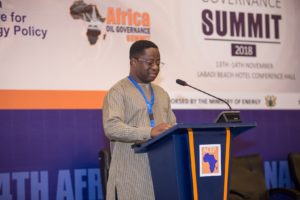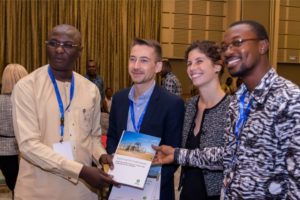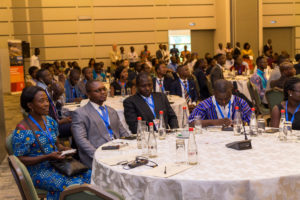ABOUT THE CONFERENCE
The Africa Oil Governance Summit is an annual event that brings together stakeholders in Africa’s petroleum industry to deliberate on emerging governance issues in the sector. Instituted in 2015, the summit provides a unique platform where stakeholders in Africa’s petroleum industry share best practices on maximizing the benefits of resource extraction through efficient governance approaches.
PARTICIPATION
The Summit will attract participants from:
- Government Ministries (including the U.S. Department of State);
- Management Consulting and Advisory Companies (including McKinsey & Company, and PwC);
- Industry Regulators
- Accountability Institutions
- National Oil/Gas Companies
- Heads of Missions of Embassies in Ghana
- International Oil and Gas Companies
- Civil Society Organizations
- Traditional Authorities
- Development Partners
- International Think Tanks/NGOs
- Academia community
EXPECTED OUTCOME
- Consensus built on key strategies to promote the coherent alignment
of oil and gas resources with the socio-economic development of the continent. - Consensus on what the role of stakeholders is for a regional approach
to maximize the benefits of oil and gas. - All the commitments by participants are captured in a communique
and used by participants to influence policies and investment drive in their respective countries. - A comprehensive Summit Communiqué will be issued to the media at the end of the Summit, copies of which will be distributed to participants, and relevant Government Ministries, Agencies and Regulators.
SUMMIT OBJECTIVES
The objectives of the Summit are to:
- Encourage alignment of Africa’s petroleum resource exploitation with the development of the continent and its people
- Provide the platform for regional consensus building on strategies that must be adopted to promote regional planning for the utilization of oil and gas resources
09:00 – 09: 45 THE OPENING CEREMONY
9:45AM – 11:30AM – 1ST PANEL: “BEYOND LEGISLATION, WHAT SHOULD BE THE ROLE OF GOVERNMENT”
Presentation of Paper by :
- Dr. Richmond Atta Ankomah and Prof. Giles Mohan.
- Dr Julliette Twumasi-Anokye (Principal Consultant, Anojul, Afriyie & Co.)
- Dr Mohammed Amin Adam (Deputy Minister for Energy, Ghana)
- Dr. Abdulrahman Osman (Ex Minister of Petroleum and Gas of the Republic of Sudan, and Current Consultant)
- Hon.John Munyes (Cabinet Secretary Ministry of Petroleum and Mining, Kenya)
- Neema Lugangira (Head of Policy, SAGCOT, Tanzania)
11:30AM – 11:45AM – SNACK BREAK
11:45 – 13:00 – 2ND PANEL: 2ND PANEL: THE PLACE OF LOCAL CONTENT IN AFRICA’S INDUSTRIALIZATION AND REGIONAL INTEGRATION DRIVE (THE FREE TRADE AGREEMENT)
- Dr Kojo Busia (Coordinator, African Minerals Development Centre, UNECA)
- Mr. Emmanuel Kuyole (Executive Director, Centre for Extractives Development, Africa)
- Mr. Salum Mnuna (The National Coordinator, EACOP Project, Tanzania And Uganda)
- Dr. Oliver Maponga (Consultant to SADC, AND UNECA Southern Africa Office, Zambia)
- Dr. Raymond Ihenacho (Mekkembuk Consultant,Nigeria and Consultant to ECOWAS)
13:00 – 14:00 – LUNCH BREAK
15:00 – 16:30 – REPORT LAUNCH/PANEL DISCUSSION
- Petroleum Cost Auditing
- Dr Ishmael Ackah
- Mr. Benjamin Boakye (Executive Director of ACEP)
- Mr. Samuel Quaque Sackey(Head of Petroleum Unit, Ghana Revenue Authority)
- Mr. Kwesi Obeng (Oxfam International, West Africa)
- Mr. Richard Amenuveve (Chief Revenue Officer, Large Taxpayer’s office-GRA).
15:00 – 16:30 – DISCUSSING COMMUNIQUE AND CLOSING SESSION
9:00 – 9:10-RECAP OF DAY 1 – MODERATOR
9:10 – 10:40-KEYNOTE – DR. BEN ASANTE
- Mr. Evans Mensah
- Mr. Jonathan Norton (Country Manager, Vitol Group, Ghana)
- Ms. Jennifer Bruce-Konuah, (Supplier Development & Delivery Manager,Tullow Ghana Plc)
- Mr. Baluri Kasim Bukari
10:40 – 10:55-SNACK BREAK 10:55 – 12:00-TOPIC: THE ROLE OF CSOS IN DRIVING LOCAL CONTENT PANEL DISCUSSION
- Charles Wanguhu (Civil Society Platform on Oil and Gas, Kenya)
- Ikal Angelei (Director, Friends of Lake Turkana)
- Kaisa Toroskainen (Africa Program Officer,NRGI-Ghana)
- Godber Tumushabe (Associate Director, Great Lakes District for Strategic Studies, Uganda)
12:00 – 13:00-PAPER PRESENTATION
- Markets as regulatory mechanisms: indigenous companies and local content requirement policies in extractive industries.
- Rafael Macatangay (Lecturer in Energy Economics-Teaching and Research, School of Social Sciences, University of Dundee).
Facilitator:
- Dr. Adriano Nuvunga ( Mozambique)
13:00 – 14:00-LUNCH 14:00 – 15:00
- OPPORTUNITIES FOR WOMEN EMPOWERMENT IN THE PETROLEUM INDUSTRY (TAKING ADVANTAGE OF LOCAL CONTENT POTENTIALS)
- Mrs. Anna Kulaya (Deputy Country Director, WILDAF Tanzania)
- Mekombé Thérèse(Oxfam West Africa)
- Dr. Jemima Nunoo (Lecturer, GIMPA/Board Member of Petroleum Commission, Ghana)
- Ms. Victoria Ibezim-Ohaeri (Executive Director, Spaces for Change, Nigeria)
- Ms. Rosalind Kainyah, MBE (Managing Director, Kina Advisory Limited)
15:00 – 16:30 – DISCUSSING COMMUNIQUE AND CLOSING SESSION
DON’T MISS THIS AMAZING CONFERENCE AND OPPORTUNITIES
MEET OUR SPEAKERS
The speakers for this year’s summit have been drawn from different countries with a great track record in governance, the petroleum sector, oil and gas and the total management of natural resources. Last year’s speakers share some similarities with this year’s speakers. However because of the different theme, most are new. They are not only dynamic in their area of expertise, but wield extraordinary knowledge which when tapped into, will go a long way in shaping our developmental process toward excellence.
.
HON. JOHN PETER AMEWU
MINISTER OF ENERGY, GHANA
HON. JOHN PETER AMEWU
MINISTER FOR ENERGY, GHANA
LAST YEAR'S SUMMIT
NOVEMBER 13-14, 2017 – ACCRA,GHANA
Africa Centre for Energy Policy (ACEP), partners and allies met in Accra from the 23rd and 24th of November 2016, to review and reflect on progress made by the country and Africa as a whole in the governance of its oil resources and to build the desired consensus on a road map to resource prosperity. The summit focused particularly on how good governance from oil wealth can be translated into development in Africa and how the continent could be assured to move away from the oil resource curse. For good governance to be achieved, participants agreed that it was paramount to pursue transparency and accountability in the oil resource sector.
In ensuring transparency, it was acknowledged that some African countries have made impressive progress such as the adoption of open and competitive bidding processes for granting oil concessions. Particularly for Ghana, the government has propelled the institutionalisation of a number of processes including the setting up of the Petroleum Commission Act, the Petroleum Revenue Management Act (PRMA) and the Public Interest Accountability Committee (PIAC) amongst others.
The summit also called for citizen and community involvement and participation in all stages of decision making right from the appraisal stages to deciding which type of projects should be funded from oil revenues.
